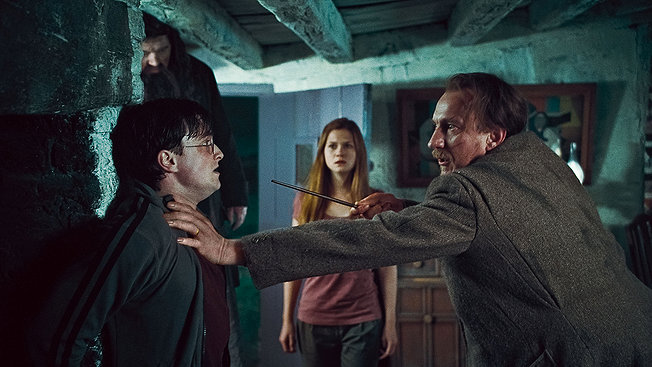The “Harry Potter” films have provided a blueprint for all subsequent film adaptations of beloved literary series. Unfortunately for audiences, this is not the blueprint to follow.
How can I say that given the films’ box office haul? It seems as though audiences worldwide are not only going out to see the films but also doing so more than once.
I can say this because there have been moments along the way that have rung hollow due to one shortcoming of the films: story, or the lack thereof. I can say this because it seems as if for every person who has seen the films multiple times, there is somebody out there who quit watching the films due to disappointment.
Don’t get me wrong: the first part of the seventh installment was the best film yet. None of the previous six even come close. But this latest installment has been plagued due to these other films’ shortcomings.
It is no small task to adapt a book into a movie, much less very large books of a wonderful series. But that is no excuse for a lack of directorial continuity throughout the series or the scripts’ inabilities to let audiences lock into an emotional constant.
If plot is characters in action, then the first few films failed to produce one. Instead, we are treated to nothing more than a series of vignettes. Under the direction of Chris Columbus, the first two films felt more like a greatest hits compilation of events from the book.
This improved somewhat with the third film, but the fourth one was the breaking point for me. Even director Mike Newell acknowledged this as a major problem.
Frankly, this is not just a problem for the “Harry Potter” series. I am not calling it out because I hate the story Harry Potter. Quite the opposite in fact: my enjoyment of the books has shown me just how poorly Hollywood has done over the years with bringing some of our most beloved literary works to the big screen.
I am not asking for adaptations that precisely follow the book or even include everything from the books. That is not possible for a film. (Heck, even “Watchmen” was almost a frame-by-frame recreation of the comic book limited series, yet there was a feeling of incompleteness.)
My solution is not that easy to spell out, but “Deathly Hallows: Part 1” was on the right track. The film focused on some of my favorite moments from the book, which I did not think would make it into the film (for many reasons, including pacing). But by devoting plenty of time to our heroic trio and their tent scenes when they are hiding in the woods, we are getting both the emotional/character growth and setup that has been missing from the films all along. Moments like these are necessary for finale to work.
I also think the response people have depends on their storytelling expectations. Do people just want to be entertained? Do they have to be moved emotionally as a part of this? It varies from person to person, and I am in no position to declare the “right” way to view a movie.
How would I have approached things differently if I were in charge of adapting the books into movies? The short answer is I would not do so. If the story was my main priority, then I would turn each of the seven books into their own miniseries. Laugh if you must, but at least the story gets an opportunity to unfold on its own time in a miniseries.
Films have their limitations, and the adaptation of literary works has continued to illustrate this. This is not a groundbreaking revelation. In the case of the “Harry Potter” films, though, we have a series that was doomed from the start. The studio’s main priority is not storytelling, and even if it were, film adaptations would be an inadequate medium for translating these stories.









